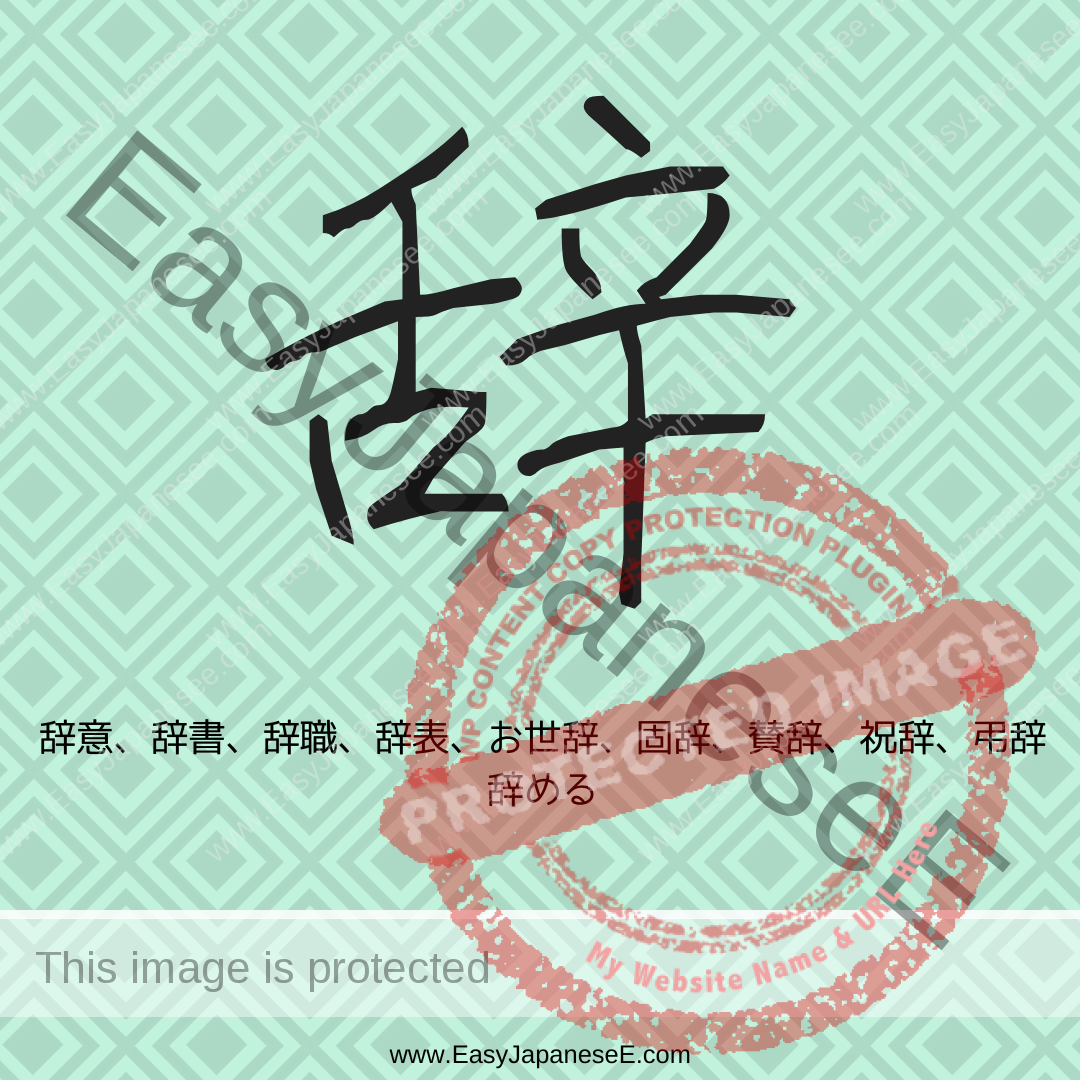Today’s #kanji is 辞, which is listed under the radical of #しん(辛). 辞 used to be considered an informal variant of 辭, which is a compound ideograph made of the left side of 辭 (I cannot bring it up onto the computer), which means to control and 辛 means “a sin.” Therefore 辭 apparently originally meant “to judge a sin/crime.”
Meaning: to quit, to decline, a word
Reading: ジ、や
辞意(ジイ): one’s resolution to resign
辞書(ジショ): a dictionary
辞職(ジショク)する: to resign, to leave one’s employment
辞表(ジヒョウ): a (written) resignanation, a letter of resignation
お世辞(セジ): an insincere compliment, flattery, blarney
固辞(コジ)する: to firmly decline
賛辞(サンジ): a praise, a compliment
祝辞(シュクジ): a congratulatory speech, a message of congratulations
弔辞(チョウジ): a eulogy, a letter of sympathy, words of condolence
辞(や)める: to resign, to retire, to quit (one’s job)
For more JLPT N3 study materials, please visit my JLPT N3 Kanji page as well as JLPT N3 Grammar page.
If you like this post, please share it with your friends through your social media accounts. Also clicking ads on the page helps me for the cost of maintaining this website. Your help will be appreciated.

